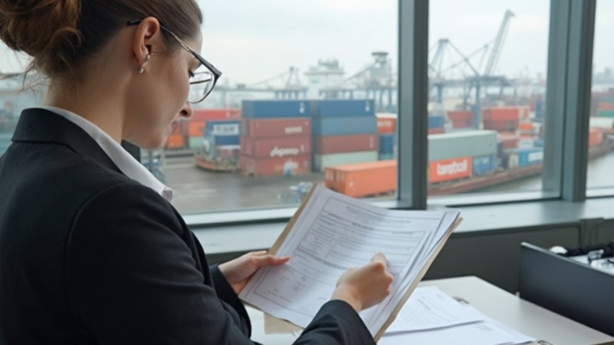"`html
South Korean exports play an important role on the world stage, and this economic achievement is supported by a tightly managed export and customs process. From semiconductors and automobiles to steel, South Korea's major exports have a strong presence in global markets. Behind this success is a thorough management of complex customs procedures. This is how South Korea maintains its credibility in international trade and achieves sustainable economic growth.
Importance of exporting to South Korea and an overview of the customs process
South Korea has solidified its position as one of the world's most important exporters. The country's major exports include semiconductors, automobiles, and steel, which play a major role at the center of global trade. Export procedures and customs processes are critical to South Korea's export performance, requiring thorough management. These processes are complex but vital to the country's economy and must be strictly enforced in line with international norms.
- Export preparation: Planning your export and researching the market in your target country.
- Contract: Create a contract that clarifies the terms of the deal.
- Export declarations: Fulfill the declaration process for export volumes, items, and more.
- Export licenses: Obtaining permits that may be required for certain goods.
- Export quarantine: Performing quarantine procedures, especially for agricultural and seafood products.
- Customs declarations: Complete the legal process with accurate customs declarations.
- Export customs clearance: Finally completing the customs clearance process for your exported goods.
South Korea uses a variety of export procedures to fuel its economy, which helps it remain competitive in the international marketplace. It shows that ease of process and efficient management of export procedures is a key challenge for companies.

Key customs procedures for exporting to South Korea
One of the most important elements of the export process is the various customs procedures. Exporters in Korea need to ensure that these processes are done correctly to ensure that their goods flow smoothly in the international market. Export declaration is a fundamental process that all exporters must follow, providing accurate information about the type and quantity of goods. This process is mandatory before goods can leave the country. Next, export licenses are sometimes required for certain goods, especially in highly regulated product categories.
“`
"`html
Specific strategies for an efficient Korean export process
Successfully managing the export process in South Korea requires a detailed strategy and adherence to procedures. The first step is to create a clear export plan and conduct thorough research on your target market, which should include product characteristics, demand forecasts, and competitive analysis. Then, you need to identify regulatory and tariff barriers in your target market early on, so you can strategize accordingly. Timely export declarations and licenses are essential, and these must be submitted in full detail and without omissions.
Export quarantine is especially important for agricultural products and cargo. You should prepare for this quarantine process in advance and take the necessary steps in advance. Finally, the customs declaration and clearance process is a key step to save time, and efficient logistics management with accurate documentation is essential. The success of exporting to South Korea is the result of such thorough planning and execution.

Korean customs procedures in action
In fact, one South Korean electronics manufacturer made effective use of the customs process to quickly gain access to export markets. The company analyzed and leveraged the benefits of free trade agreements (FTAs) in advance to minimize its customs burden, which allowed it to quickly expand into new accounts with competitive pricing in foreign markets.
In another example, a steel exporter automated its customs declaration process, reducing errors in document submission and dramatically reducing customs clearance time. These tips and the adoption of automated systems maximize the efficiency of the trade process, minimizing the trade hurdles faced by companies. By eliminating inefficiencies through sophisticated management systems, you can become more proficient at exporting to South Korea and navigating the customs process.
“`
"`html
Advanced uses and future prospects for exporting to South Korea and customs procedures
Advanced uses of South Korean exports and customs procedures include automation through artificial intelligence (AI) and blockchain technology. AI can contribute to accurate duty forecasting and export documentation, reducing errors and increasing time efficiency. Blockchain technology can be utilized to enhance the transparency and reliability of export transactions. In the future, the adoption of these technologies is expected to significantly increase the competitiveness of exporters. In addition, Korea is constantly signing new free trade agreements (FTAs), which companies can take advantage of to maximize tariff benefits. Utilizing these technologies and agreements will further brighten the future of Korean exports.
Conclusion and wrap-up
Understanding and effectively managing South Korean exports and customs procedures is essential for success on the international stage. With thorough preparation, a strategic approach, and the adoption of the latest technology, exporters can gain a competitive edge to reach markets around the world. Now is the time to make strategic decisions that will guide your company's growth through these procedures. Korean exporters should be proactive and look for ways to target markets and maximize tariff benefits in each country. It's time to take on new challenges and strengthen your position on the global stage!
“`